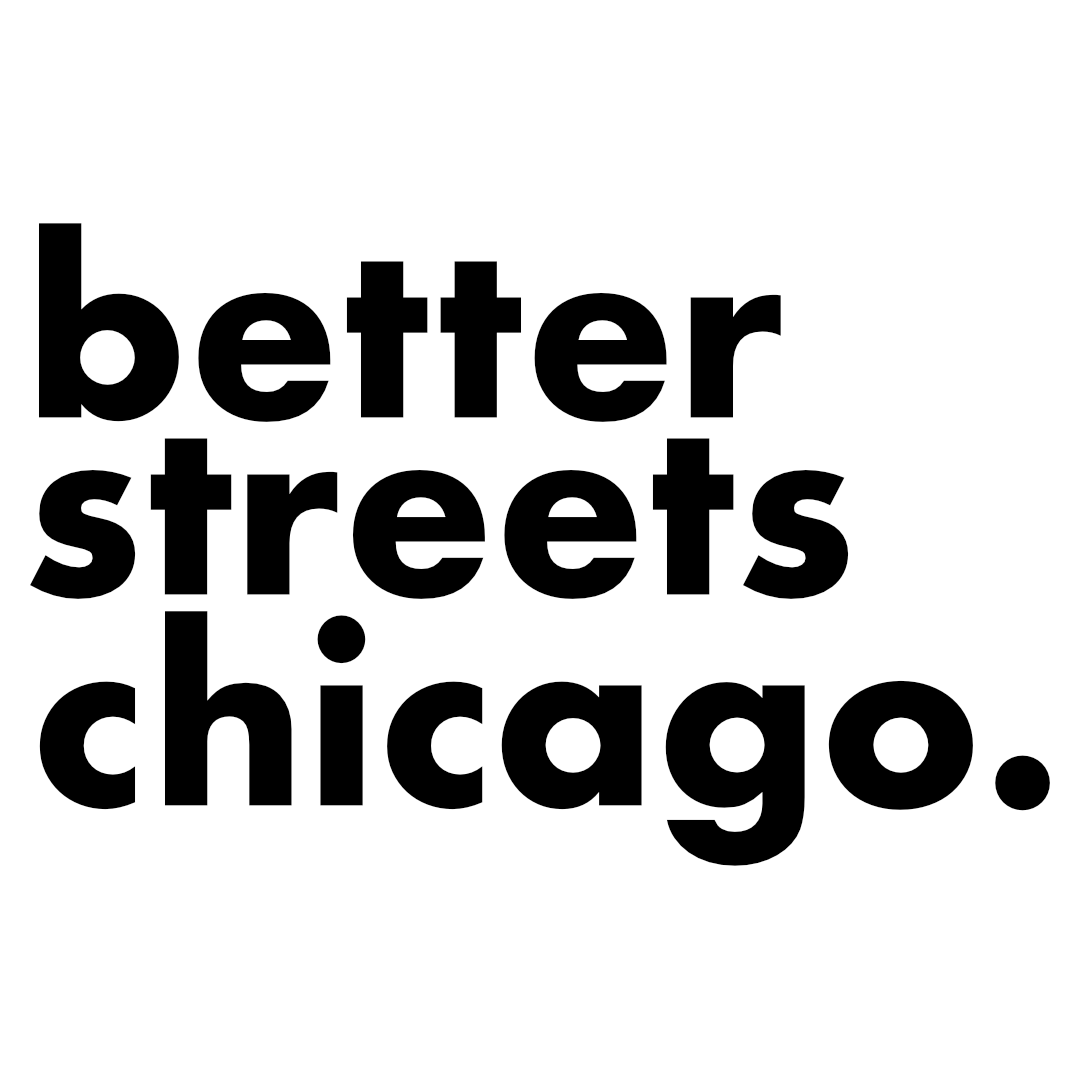Better Streets Chicago Starts with a Just Chicago
Better Streets Chicago was founded to empower everyday Chicagoans to advocate for a more just and sustainable transportation environment. Right now, as a city, we’re really grappling with that “just” part.
Photo shared with permission - Credit: Alex Knowbody (Instagram)
Let us be perfectly clear: Better Streets Chicago stands in solidarity with the protesters and advocates demanding an end to police violence against Black people – because Black Lives Matter. Our streets will never truly be better if they are not better for every person, of every race, in every neighborhood of our city. If we are to have better streets, the fight doesn’t stop when police brutality directed at Black people ends. We cannot win the fight if we do not listen to and invest in Black communities and give Black people the support and resources needed to help them not only survive, but to thrive. Non-Black people must let Black people lead the way, amplifying their voices and supporting their needs while also working independently to help stop the many (and often subtle) ways racism shows up in our world.
Most of you are still getting to know Better Streets Chicago, as our organization was only formed this year and we are still in our infancy. In the lead up to our launch, a frequent conversation amongst our co-founders was around our commitment to making sure we found ways for everyone to share the needs of their communities and make change – including predominantly Black areas that have been historically left out of streets and transportation-planning conversations in Chicago. We are committed to boosting and supporting the transportation needs of these communities.
One of the many pedestrian crossings in the Loop that were raised on Saturday, May 30, severely limiting the movement of people in and out of the Loop. (via @TylerLaRiviere)
This weekend, our city and our nation have witnessed unrest unlike what many of us have ever known. The cries for justice are deafening, and the effects of injustice have been made clear. We have been appalled both by the brutality against Black people and the city’s handling of the protesting this weekend.
What is just about shutting down an entire public transportation network (in addition to the Divvy bike share network) with less than two hours notice, as the city did on Sunday evening?
(Via @cta)
Or trapping protesters in the Loop without access to transit and only one pedestrian river crossing – while giving less than twenty minutes’ notice of a curfew – as the city did on Saturday evening?
(Via @chicago)
In addition to the impact this dangerous and unnecessary closure of transit and exit paths had on the protesters, it’s important to remember that essential workers and people relying on transit for essential trips (let’s not forget that CTA ridership is primarily low-income and non-white) were also negatively impacted by these hastily made service stoppages. The largest area of stoppages (prior to the full shutdown) was on the South Side.
We expect much more from Chicago. We’re glad the service cuts are ending, but they never should have happened. We need a commitment from the mayor to seek alternatives going forward.
We challenge our white neighbors to consider the many ways in which Black people are still systematically deprived of the same “luxuries” white people and their communities often enjoy, from sufficient and safe public transportation access to the ability to go for a jog down their street without being murdered simply because of their race. We also challenge others to consider the ways in which they may have played a role in maintaining racial divides, whether knowingly or not.
There are many ways that white people can play a part in moving us closer to a society that truly demonstrates Black lives matter. Protesting on the streets is just one of many ways you can contribute. If you’re looking for other concrete actions you can take, we recommend starting with 26 Ways to Be in the Struggle Beyond the Streets.
Finally, we challenge any person with the financial means to support organizations in Chicago that lift Black voices and fight for justice, both during recent events and in the on-going fight for equality. Below are just a few of the many organizations that can use your support. This list is only a start, and we hope you’ll take the time to learn more about these and other organizations that are actively fighting the racist systems harming our Black communities.




